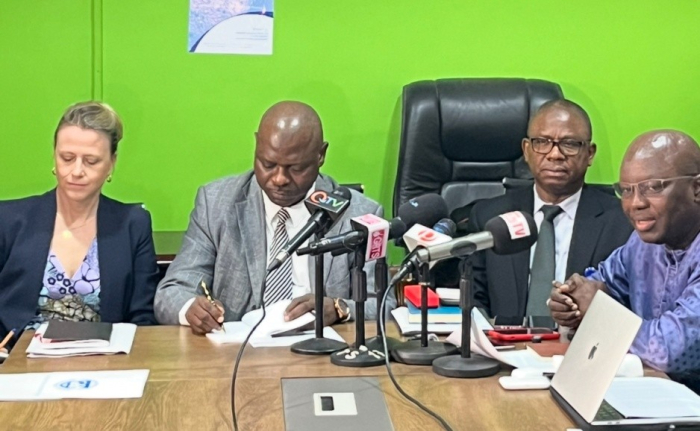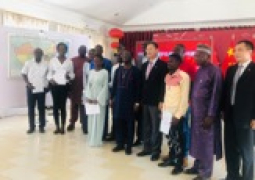
Ms. Jenkner, who led the delegation from Washington, D.C., said the IMF and the Gambian authorities agreed on the parameters for the 2026 national budget, which will focus on continued fiscal consolidation and sustainable public finances.
“It is still a long road ahead, but we are very happy to stand with the people of The Gambia and support them in their development journey,” she said.
The IMF mission was in the country to conduct the Fourth Review of the Extended Credit Facility (ECF) and the First Review of the Resilience and Sustainability Facility (RSF). The team met with government authorities, development partners, civil society organisations and the private sector.
Ms. Jenkner noted that inflation declined to 7.6 percent in August, reflecting the Central Bank’s prudent monetary stance, and expressed confidence that The Gambia will achieve its medium-term inflation target by next year.
She also lauded the government’s progress on governance and anti-corruption reforms, including steps to operationalise the Anti-Corruption Commission once the National Assembly approves the submitted shortlist of commissioners.
On the exchange rate, the Mission Chief said the Central Bank’s policies have strengthened the dalasis’ stability by allowing it to freely float as a shock absorber, while foreign exchange intervention is now mainly aimed at building reserves.
Despite global economic uncertainties and potential risks from fluctuating commodity prices and tourism demand, Ms. Jenkner expressed optimism about The Gambia’s fiscal resilience, emphasising that the country is “standing on its own feet” through strong domestic revenue mobilisation.
Meanwhile, Finance Minister Seedy Keita used the opportunity to clarify recent controversies surrounding the Russian oil deal and rice importation project involving Win Win Company.
He explained that a parliamentary inquiry found no evidence of wrongdoing in the $30 million oil transaction, though minor regulatory lapses were noted. On the rice deal, he dismissed claims that the Ministry issued a guarantee without compensation, saying the Memorandum of Understanding (MoU) clearly outlines a profit-sharing arrangement, with the government entitled to 30 percent of profits.
“The claim that the government provided a guarantee without compensation is false,” he said, stressing that the initiative was designed to empower local businesses and reduce dependency on foreign traders.
The press conference concluded with both sides reaffirming their commitment to sustaining macroeconomic stability and ensuring the full implementation of agreed reforms under IMF-supported programs.
Read Other Articles In Headlines
Court arraigns men who allegedly assaulted police officer
Sep 13, 2024, 10:15 AM




